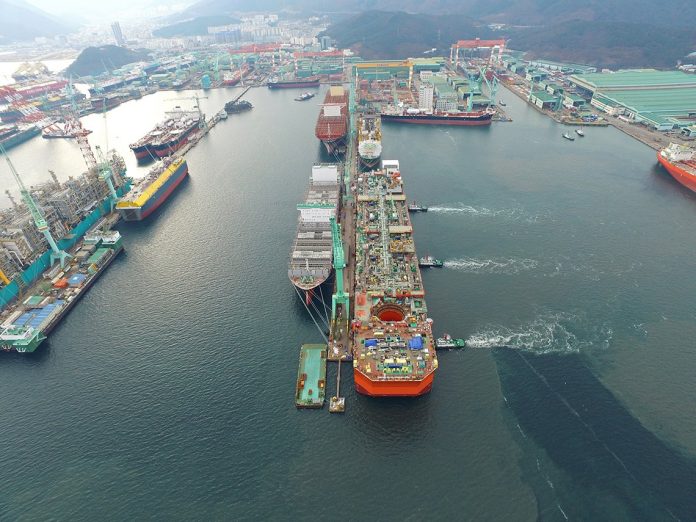Following the one-year anniversary of the Russian and NATO standoff, Europe continues to make its diversification vision clear. Whilst liquified natural gas (LNG) has proven to be the perfect tool in the EU’s energy crisis toolkit, the bloc’s short list of suppliers may pose a challenge for the upcoming and future heating seasons.
Considering Europe’s continued hunt for new LNG suppliers, many policymakers are looking South with the hope of Africa entering the global gas exporting market. However, these hopes may be short-lived when looking at Africa’s lack of investments in LNG export capacity infrastructure. Coupled together with the EU’s net-zero commitments and – as a result – the difficulty of providing a long-term LNG roadmap highly sought after by key LNG suppliers – including those from the African continent.
Europe’s climate dilemma and Africa’s short-term competitive losses
Indeed, as highlighted by Mostefa Ouki, Senior Research Fellow at the Oxford Institute of Energy Studies, time is a major constraint arising from the above considerations. Brussels’ diversification efforts from Kremlin’s gas are likely to continue on a short-to-medium basis, whilst Africa’s potential incremental gas export capability during this period is limited. According to the GECF Global Gas Outlook 2050, global natural gas production will continue to rise by an average of 1.1 per cent per year. Africa will account for the second-largest volumetric growth, translating to more than 11 per cent of the global gas supply by 2050, in comparison to slightly more than 6 per cent in 2021.
However, in the short term, a much different picture of Africa’s export can be seen, especially when looking at Europe’s biggest suppliers from its southern continental neighbour. For example, securing additional gas supplies from Algeria to Europe would be very limited as the country continues to face natural gas production constraints and rapidly growing domestic gas demand. Egypt, the continent’s largest gas consumer, has a domestic gas demand close to its marketed gas production, with it having to rely on gas imports from Israel. Whilst in Africa’s largest holder of natural gas reserves – Nigeria, gas supply and infrastructure issues continue to limit the country’s existing and future gas export and domestic market needs.
For the African gas industry, this naturally places a major competitive roadblock amid growing volumes of flexible US LNG and, by the end of this decade, a significant increase in Qatar’s LNG export capacity.
Growing gas demand on both continents
As separately noted by Mr Ouki, African LNG exporting sources are limited to a few subregions of Africa. Most African countries are far from being endowed with large proven natural gas reserves or could easily switch to the consumption of natural gas. In the past two decades, total natural gas consumption in Africa grew at an average annual rate of 5 per cent – with North and West African countries accounting for more than 90 per cent of the continent’s consumption.
In the next 10 to 15 years only a limited number of African countries could potentially remain or become net large exporters of natural gas. As Mr Oauki pointed out, this is due to the decline of production in old fields, limited indigenous natural gas reserves and lack of upstream investments and the growing domestic gas demand in several African countries.
However, despite the spike in the gas demand on both continents and investment hesitancy, the African continent is home to a selective emergence of new gas-producing players. Among them is Mozambique, which thanks to its small domestic gas market, is predominately oriented towards LNG exports.
Mozambique’s first LNG project – Coral Sul FLNG (floating liquefied natural gas) unit with a capacity of around 5 billion cubic metres (bcm) was commissioned late last year. A much larger (around 18 bcm) delayed Mozambique LNG project is scheduled to come onstream during the second half of this decade. Other large-scale projects planned in Mozambique include the Rovuma onshore LNG production complex under the Mozambique Rovuma Venture (with ExxonMobil as a majority stakeholder), which has also noted progress in recent months – with a final investment decision expected later this year.
Despite Mozambique’s progress in developing its LNG exporting capacity, time is again a major roadblock. According to Mostefa Ouki, the future monetisation of Africa’s gas resources and reserves will take time and international funding. The bulk of these new projects’ LNG capacity is planned to come onstream during the second half of this decade or later.
Policymakers in existing and potentially new African gas-producing countries have made it very clear that any significant boost in their natural gas exports to Europe and other destinations will require international upstream investments underpinned by long-term offtake agreements. Here, the climate dilemma reemerges – with hesitancy from oil and gas companies to make such commitments while at the same time complying with long-term international decarbonisation commitments.
An untapped opportunity for companies in CEE?
Whilst the bloc’s dichotomy between climate leadership and energy security remains incomplete, recent legislative steps – such as the inclusion of natural gas in the EU taxonomy regulations – signal a willingness to shape the EU’s long-term energy vision with greater flexibility. Some leading European companies like the Italy-based Eni (part of the Mozambique Rovuma Venture) have also made their interest in expanding ties with Africa clear. In November 2022, Eni announced the first shipment of LNG produced from the Coral gas field to Europe, which departed from the newly-commissioned Coral Sul FLNG unit.
Eni has also either continued or increased its cooperation with leading continental gas
players like Egypt, Nigeria, Algeria and the Republic of Congo.
Considering the above, selective African countries may just have the right background to aid diversification efforts for leading energy companies in Central and Eastern Europe (CEE), particularly in the short-to-medium term. Meeting the Nigerian President in September 2022, Polish President Andrzej Duda said that Poland would like to see increased LNG supplies from Nigeria. In 2022, three LNG deliveries arrived at the terminal in Swinoujscie.


